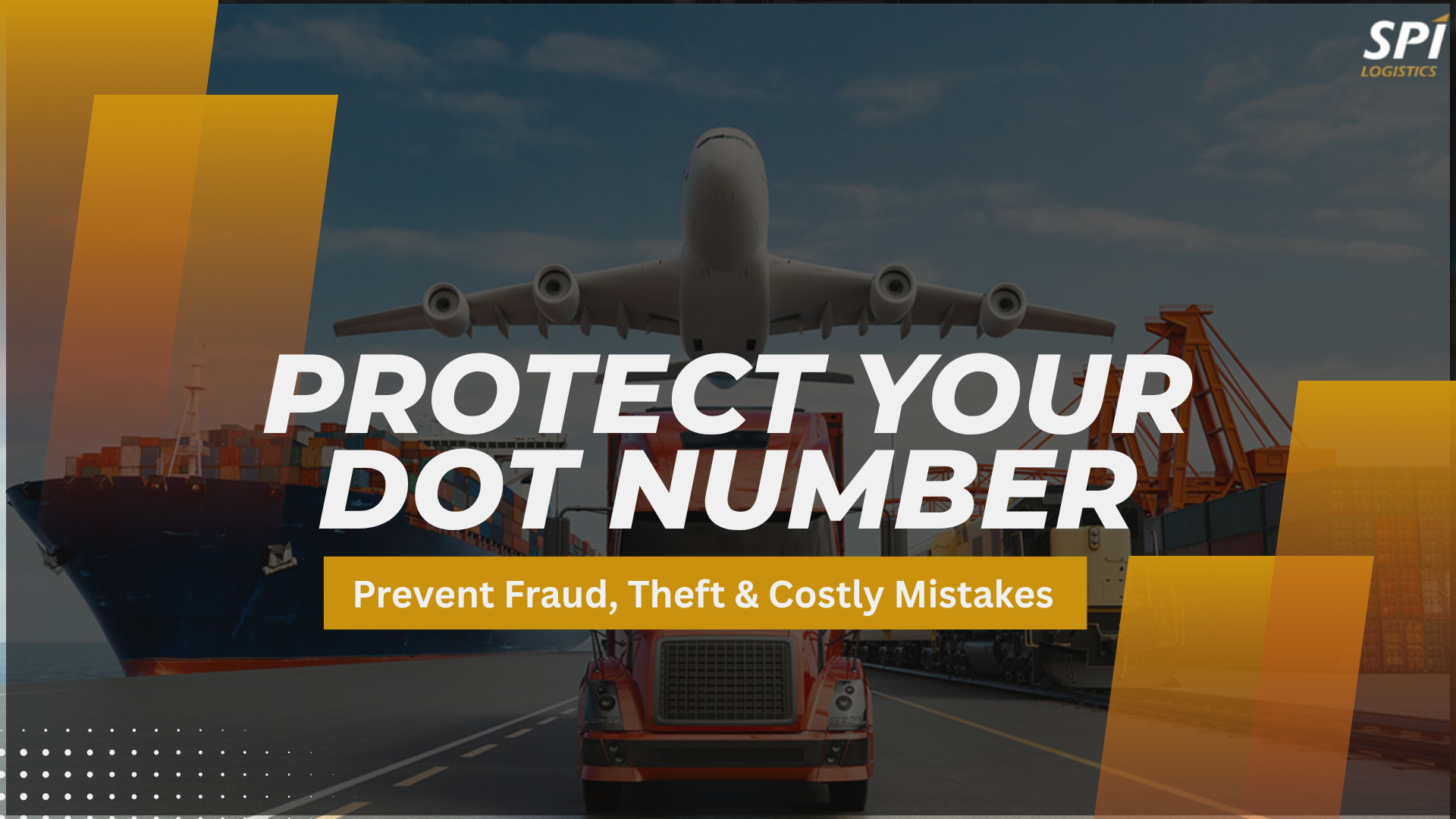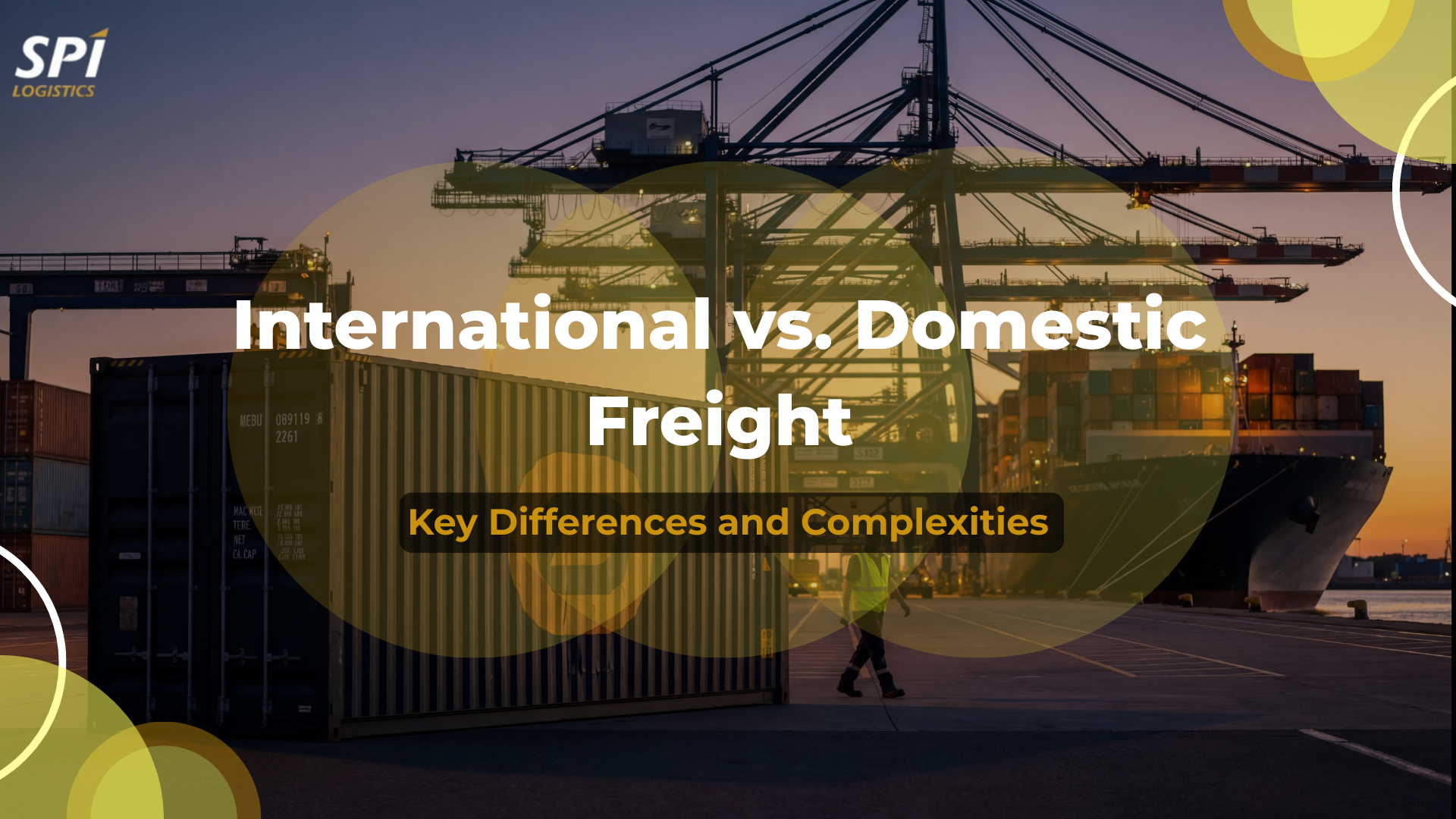Your DOT number is more than just a registration ID, it’s your company’s federal identity in the eyes of regulators, insurers, and shippers. Once issued, that number is tied to your safety performance, insurance history, and compliance record. If misused or compromised, it can lead to lost contracts, steep fines, or even revoked operating authority.
In this guide, we’ll show you how to protect your DOT number, avoid costly errors, and spot fraud before it damages your business.
What Is a DOT Number and Why Do You Need It?
A DOT number is a unique identifier issued by the Department of Transportation (DOT) for vehicles involved in interstate commerce. It tracks your company’s safety records, inspections, and accident history.
There are different types of DOT numbers, including:
- Federal DOT number – Required for interstate carriers or those transporting hazardous materials.
- State DOT number – Required by certain states for intrastate travel.
- Motor carrier DOT number – Specific to companies that haul regulated commodities for hire (Transport Topics, 2023).
If your vehicle meets any of the following criteria, you’ll need to apply for a DOT number for the truck.
- Has a gross weight rating of 10,001 lbs or more
- Transports 9+ passengers for compensation
- Carries hazardous materials in quantities requiring placards
“Think of your DOT number as your carrier’s fingerprint, unique, trackable, and critical to your legal existence in interstate commerce. Without it, you’re essentially invisible to regulators and high-risk to partners.”
Have you recently applied for a DOT number, or are you still unsure if your operation qualifies for one?
Understanding the Difference Between DOT and MC Numbers
Many new carriers confuse the DOT number with the MC (Motor Carrier) number, but they serve different purposes:
- DOT Number: Required for vehicles involved in interstate commerce. It tracks safety, inspections, and compliance.
- MC Number: Grants for-hire carriers the authority to transport regulated commodities for compensation.
| Feature | DOT Number | MC Number |
| Required For | interstate/intrastate carriers | For-hire interstate carriers |
| Tracks | Safety performance | Legal authority to operate |
| Regulated By | FMCSA | FMCSA |
If you only operate within your state and don’t haul for hire, you may only need a state DOT number. However, many carriers need both, and failing to understand the difference can lead to compliance errors or operating illegally.
“Many carriers mistakenly think a DOT number is enough, but operating across state lines with regulated cargo requires MC authority too. Understanding both prevents unintentional violations.”
Do you currently hold both a DOT and MC number, or are you unsure if you need both?
Why DOT Number Protection Matters
Your DOT number for truck operations is more than just a regulatory requirement, it’s a business identifier that scammers can exploit.
- Rising fraud in the industry: According to the Federal Motor Carrier Safety Administration (FMCSA), reported fraud cases involving unauthorized use of DOT numbers rose by over 50% between 2020 and 2024 (FMCSA, n.d.).
- Direct business impact: Fraudulent use of your motor carrier DOT number can lead to insurance issues, violation notices, and delays in payments.
- Online exposure risk: DOT numbers are publicly searchable via the FMCSA database, making them a prime target for phishing, spoofing, and unauthorized dispatch activity (FreightWaves, 2023).
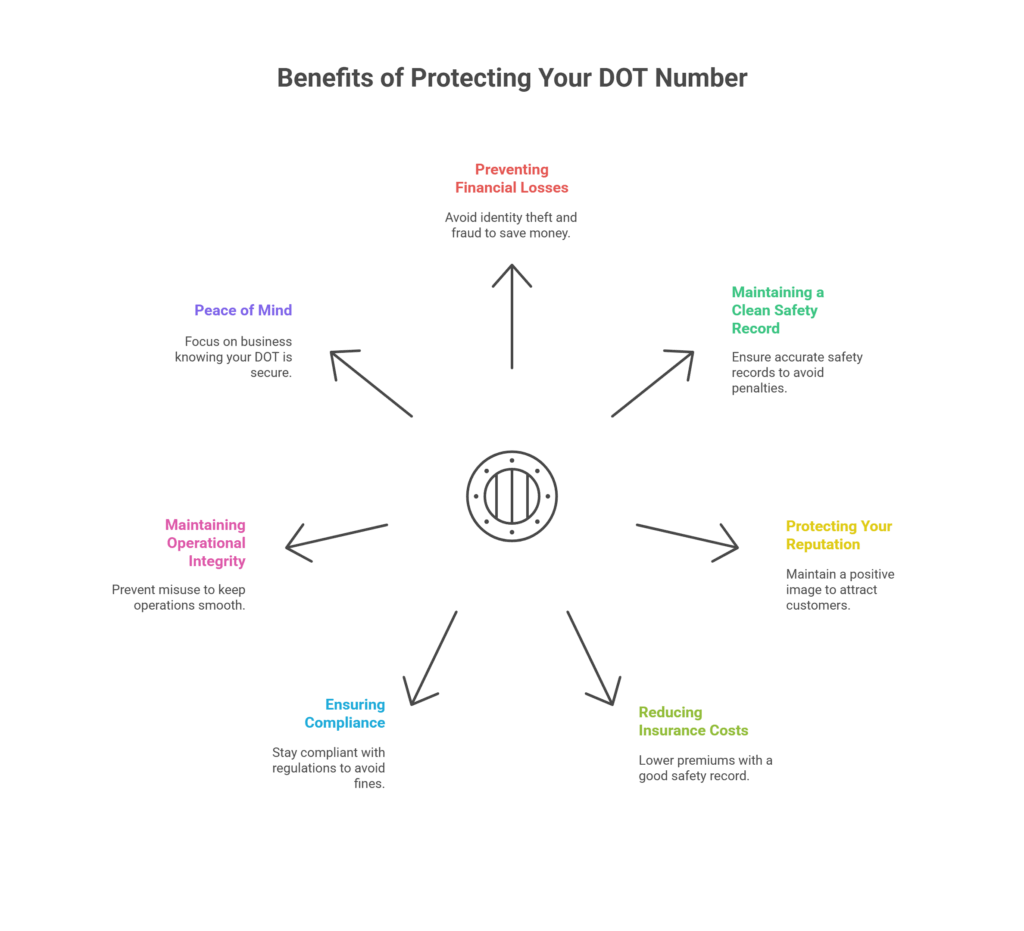
“DOT number misuse is one of the fastest-growing threats in trucking compliance. With so much public exposure in FMCSA databases, bad actors don’t need to hack you, they just mimic you.”
How confident are you that your DOT number hasn’t already been used without your knowledge?
How DOT Number Scams Typically Work
Here’s how scammers exploit your DOT number once it’s active:
1. Hijacking your registration: Scammers can use your publicly listed department of transportation DOT number to impersonate your business and book loads fraudulently (Transport Topics, 2023).
2. Fake insurance certificates: They submit falsified COIs (Certificates of Insurance) under your DOT, leading to carrier blacklisting and lawsuits.
3. Load-board impersonation: With your DOT number in hand, they list themselves on freight boards and vanish after picking up loads.
“A DOT number is like your social security number in the freight world, treat it with the same level of protection.”
Ways to Secure and Protect Your DOT Number
1. Use a Unique Business Email for FMCSA
Never use a generic email like “info@” or your personal Gmail. Create a dedicated FMCSA email to monitor all regulatory updates, especially for your transportation number (FMCSA, 2024).
2. Monitor Your DOT Profile Monthly
Use the FMCSA’s Safety and Fitness Electronic Records (SAFER) system to monitor your profile. Look for any changes in:
- Company name
- Address
- DOT number for truck
- Operating status
- Safety violations
3. Lock Down Your Portal with a Strong Password
Your FMCSA login is the gateway to your DOT application and status. If someone gets in, they can change your authority or deactivate it without notice.
4. Beware of Phishing and Fake Compliance Emails
Scammers send emails pretending to be from FMCSA or “compliance services.” If you’re unsure, verify the sender or log into your account directly.
5. Display Your US DOT Plate Properly
Improper or missing plates may raise red flags during inspections. Your US DOT plate should match your active number exactly and meet these standards:
- Visible on both sides of the vehicle
- Minimum 2” lettering height
- No faded or illegible characters
6. Don’t Share Your DOT Info on Public Forums
Scammers harvest DOT data from job boards, forums, and social media. Keep your federal DOT number and login info off public sites.
7. Use a Reliable Third-Party Monitoring Service
There are services that track changes to your motor carrier DOT number or alert you if your DOT trucks have been involved in suspicious activity.
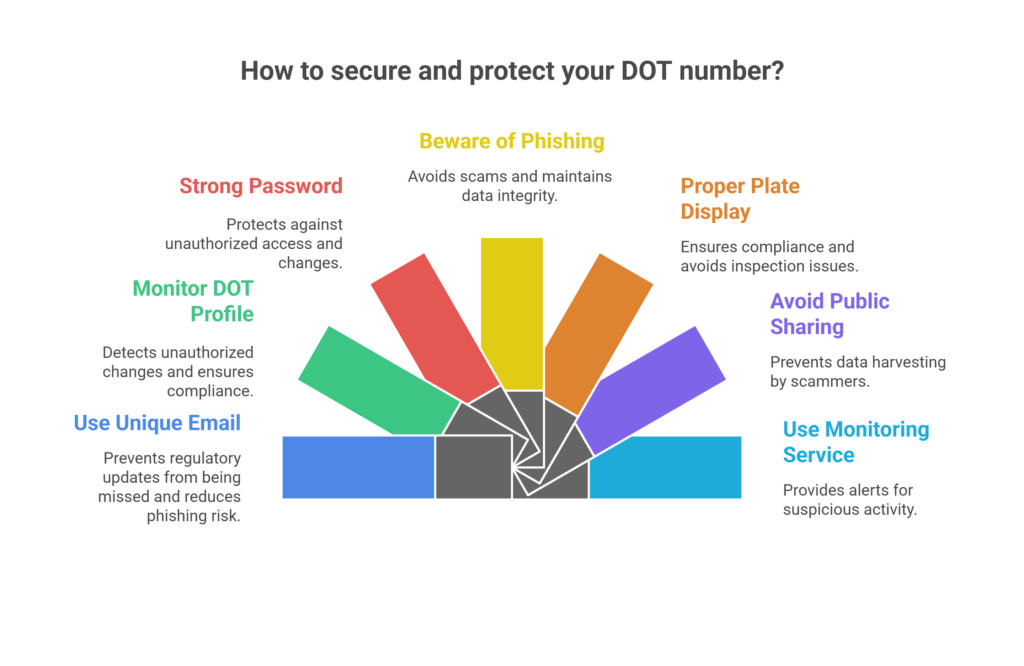
“Security begins with awareness. From creating a dedicated FMCSA email to proactively monitoring your SAFER profile, small preventative steps can save you from months of audits or legal disputes.”
Are you using the right tools to protect your DOT number from fraud and unauthorized access? Explore advanced freight broker technology solutions that help you monitor, secure, and manage your operating authority more effectively.
What Can Happen If You Don’t Secure It
Failure to protect your DOT number can result in:
- Identity theft of your trucking company: Fraudsters can use your business identity and DOT number to open fake accounts, apply for permits, or operate illegal vehicles under your name. For example, a scammer might impersonate your fleet and get involved in an accident, leaving you liable for damages.
- Unauthorized use of your authority by rogue carriers: Some carriers “borrow” active DOT numbers to bypass licensing requirements. These unauthorized operators may have no insurance or safety protocols, but their violations get logged under your record. One report showed a small fleet in Texas unknowingly had their DOT number used in three states they’d never operated in.
- Sudden compliance audits: Suspicious activity or inconsistent filings could trigger surprise audits from the FMCSA. These audits are time-consuming and often costly, even if you haven’t done anything wrong (FMCSA, 2024).
- Loss of business partnerships: Shippers and brokers routinely vet DOT numbers. If your record shows unexplained violations or sudden changes, they may blacklist you to protect their operations. Even a forged crash report under your DOT can ruin a long-standing shipping contract.
- Fines for violations you didn’t commit: You could receive citations for missed inspections, hours-of-service violations, or illegal cargo shipments that weren’t yours. These fines not only hurt your wallet but also raise your company’s risk profile.
- Permanent deactivation of your state DOT number: If your number is misused and you fail to correct or respond to violations in time, your state-level DOT authority can be revoked. Once deactivated, it’s often difficult and expensive to reinstate.
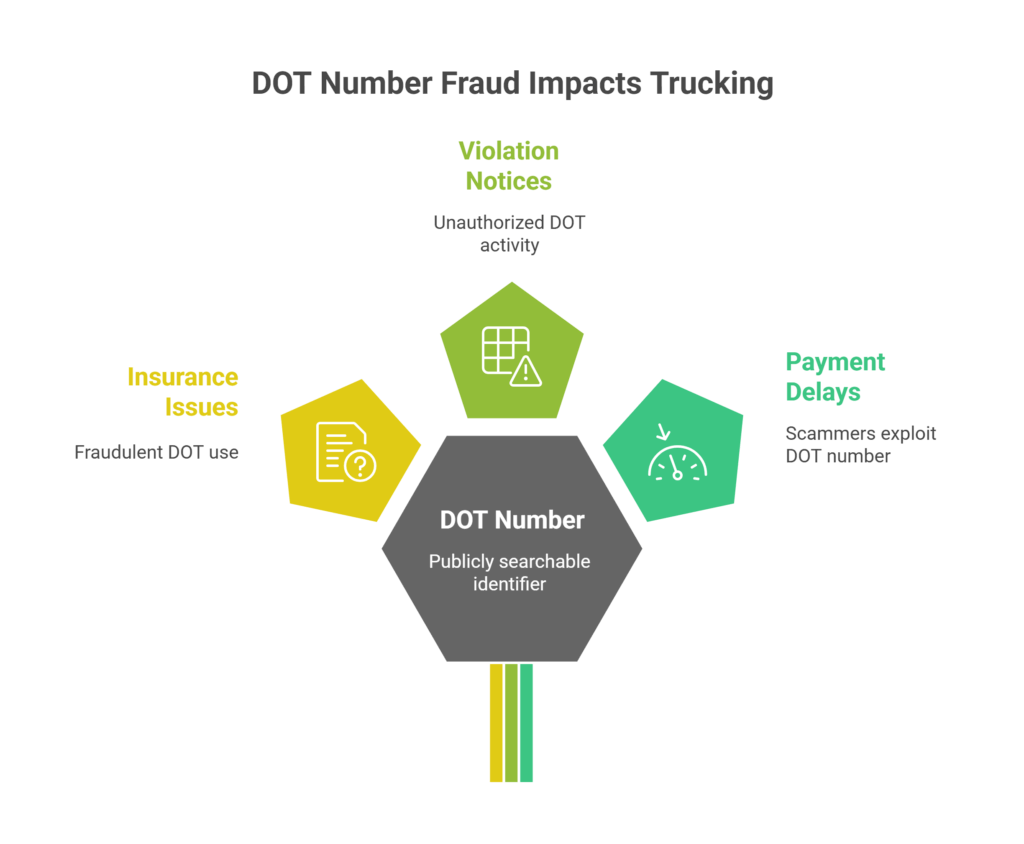
“One stolen DOT number can unravel years of safe operations. We’ve seen clean carriers get hit with ghost violations, unexpected audits, and even lose shipper contracts due to impersonation.”
Have you or someone you know experienced business disruptions due to unauthorized DOT number activity?
What to Do If Your DOT Number Has Been Compromised
If you suspect someone is misusing your DOT number or you notice suspicious activity in your FMCSA profile, take these actions immediately:
1. Report the Issue to FMCSA: Use the FMCSA National Consumer Complaint Database (NCCDB) to file a report. Include evidence such as logs, inspection reports, and misuse patterns (FMCSA, 2024).
2. Update Your MCS-150 Form: Reaffirm your authority by submitting an updated MCS-150 form to ensure all company information is correct.
3. Contact Your Insurance Provider: Alert them that fraudulent activity has been reported. They may need to flag certain claims or initiate an investigation.
4. Monitor Your Safety Records Closely: Watch for new violations or crashes that don’t belong to your vehicles. Keep detailed logs to refute them during audits.
5. Consult a Compliance Attorney: For serious misuse, you may need legal support to prevent deactivation or challenge DOT violations that aren’t yours.
“DOT number fraud can escalate quickly, we’ve seen legitimate carriers shut down due to unauthorized activity. The sooner you file with FMCSA and document everything, the better your chances of protecting your business.”
Is your business prepared to respond if your DOT number is compromised?Learn how freight broker compliance and risk management strategies can help you take control quickly and avoid devastating penalties.
Frequently Asked Questions
1. How do I know if someone is using my DOT number fraudulently?
Look for red flags like violations, crashes, or inspections in your FMCSA profile that don’t match your operations. Also, check for duplicate carrier names or unauthorized addresses listed in your SAFER profile.
2. Can I change my DOT number if it’s been compromised?
No, DOT numbers are permanent. However, you can file a complaint with the FMCSA, update your MCS-150, and take legal action to disassociate your business from fraudulent activity.
3. Do I need both a DOT number and MC number?
Yes, if you operate across state lines and transport regulated goods for compensation, you need both. The DOT number tracks safety and compliance, while the MC number grants legal operating authority.
Protect Your DOT Number
Protecting your DOT number is not just about avoiding fines, it’s about safeguarding your reputation, authority, and ability to operate legally in the freight industry. With fraud on the rise, especially among small carriers, staying vigilant is essential. Regularly monitoring your FMCSA profile, understanding the role of your DOT and MC numbers, and taking swift action when issues arise can make the difference between a thriving business and unexpected shutdowns. Don’t wait until your compliance is compromised. Be proactive, stay informed, and treat your DOT number like the business asset it truly is.
Ready to secure your authority and protect your business? Contact us to explore tools and strategies that keep your authority secure.
References
Transport Topics. (2023). “Regulatory Compliance in a Digital Freight Ecosystem.” Retrieved from Discover more
FMCSA. (n.d.). Unified Registration System and DOT Fraud Prevention. Retrieved from Discover more
FMCSA. (2024).Ways to Secure and Protect Your DOT Number Retrieved from Discover more
FreightWaves. (2023). “DOT Number Fraud on the Rise in the Trucking Sector.” Retrieved from Discover more

